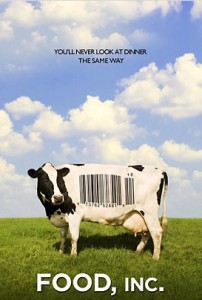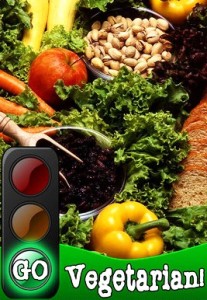VegEats is a Campus Clipper column where we discuss the benefits of vegan/vegetarian-friendly eating in New York City and find ways for students to eat healthy and be environmentally friendly with their food while still saving money.
I want to share with you why I went veg. I am not trying to tell you to make the same choice. But most students who move to New York City encounter a much larger number of vegetarians and vegans than they have before, and I want to offer an idea of why someone might have chosen this diet/lifestyle. And for those of you who might be considering going veg, I hope to give you some things to consider and some advice. I went veg because I researched and educated myself about how eating animals and animal byproducts affected my health, the health of the planet, and the life of the animals. What I learned upset me and made me not want to use my money to support a system that has so many negative consequences. (If you would like to educate yourself, there are a abundance of resources online. I would personally recommend the site goveg.com, as well as other resources like Robert Kenner’s excellent 2008 documentary Food, Inc.)
But I think the reason I was successful in going veg and have felt so good about the decision is I didn’t make any changes too quickly and allowed myself to work at my own timeline. There’s a term in psychology, cognitive dissonance, which means the uncomfortable feeling you get by trying to maintain two contradictory ideas simultaneously. I was brought up, like many others, believing it’s okay to eat animals. But as I learned more about the consequences of this action, I increasingly found reasons why it wasn’t. Over time, months and months, my discomfort grew so that when I ate meat or cheese or eggs, I didn’t feel good about it. The food didn’t seem satisfying anymore.
Even once I decided to actually change my diet, I did it in baby steps: I gave up red meat, then waited a few months, then gave up turkey, then waited; and when I began to consider veganism, I went on “practice runs” every few months for over a year, adopting a complete vegan diet for longer and longer periods of time. During both of these process’, I was careful to note what cravings I had and what foods assuaged them. For example, when I went vegetarian, I kept a jar of crunchy peanut butter within reach at all times – I even had one under my bed with a spoon! Whenever I was feeling sluggish or craving a cheeseburger, I ate a big scoop of crunchy PB. Almost immediately I trained my body to crave peanuts when it needed protein instead of meat; it’s amazing how quickly and easily the body will adapt to changes we make as long as we are attentive to it and make sure it gets what it needs.
I paid attention to how hungry or not hungry I felt, my energy levels, how well I was sleeping, my mood, everything. Diet is probably one of the easiest ways to change your whole life, for better or worse; making huge sudden changes and expecting your body to immediately adjust is a recipe for disaster. By the time I was fully vegetarian and fully vegan, I no longer had any craving for those foods – I knew what my body could use to replace them, and I liked being able to eat food that was not only delicious but good for me, animals, and the planet.
If you are interested in going vegetarian or vegan, that’s great – I’ll have more advice about that in future posts. But even if you’re not, college is an important time for your diet. For many of us, this is the first time we’re deciding what’s for dinner, and that’s actually a really important decision. The quality and quantity of food you put into your body affects you physically and in a multitude of other ways – underestimating the importance of a healthy diet is a huge mistake too many students make. Please research your food – where does it come from, how is it prepared, what nutrients, fats, and calories does it contain, and how will these properties affect you. Knowledge is power, so do what you came to college to do: learn.
Get great College Discounts at vegetarian restaurants in NYC!
Download our NEW App on iTunes!
Become a fan on Facebook and follow us on twitter!
Don’t forget to sign up for our bi-weekly newsletter for student promotions and coupons and download the coupon booklet NOW!




